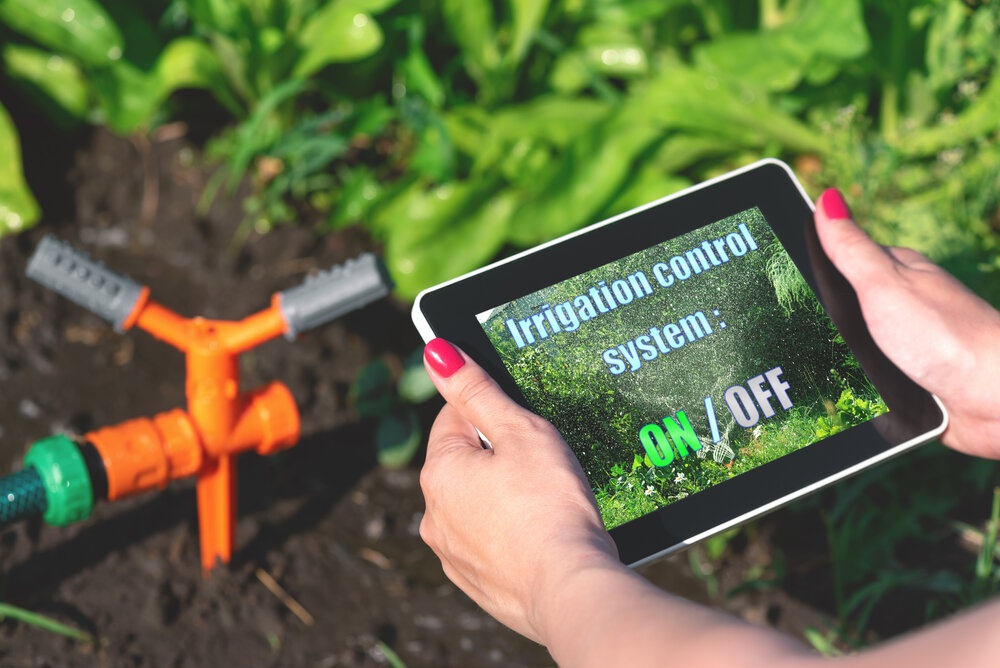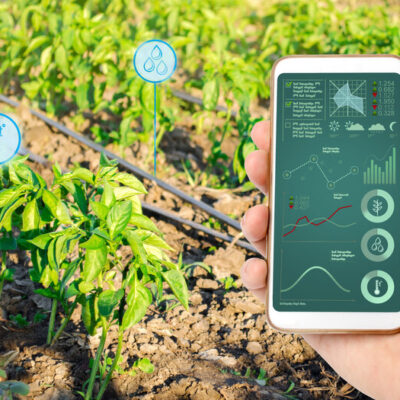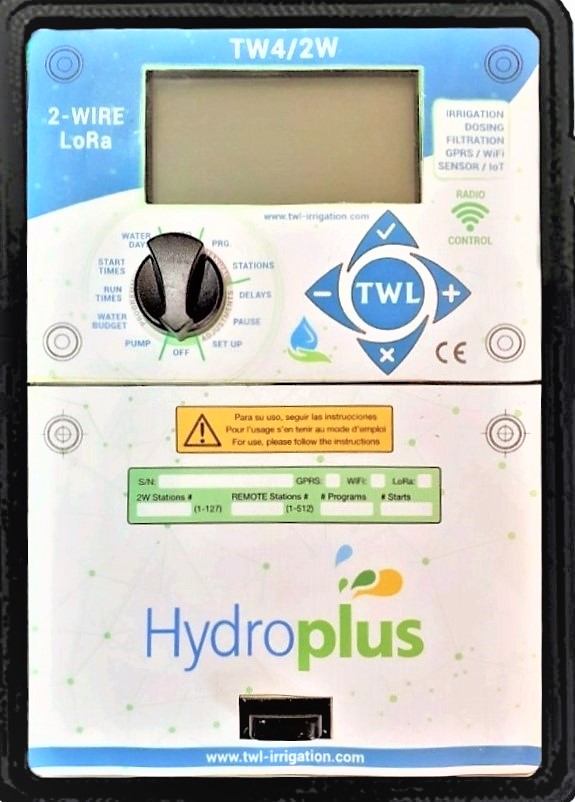Watering your garden or lawn can be something of a chore. The bigger the area you're watering, the more of a chore it becomes. It's why irrigation systems were designed. If you've already automated your garden watering it is probably one of your best time-saving achievements, especially during those hot summer months.
That network of pipes, sprinklers or drippers (depending on which type of watering system you've installed) can be a real boon. But depending on the type of controller you installed (if indeed you installed one at all), your irrigation system may not be as efficient as it could be.
Most home gardeners are well in touch with Mother Nature and are keen environmentalists to one extent or another. But whether you are turned on by saving money (something which is close to most of our hearts), or your motivation is water conservation, or you're simply a lover of smart devices; installing a smart irrigation controller can bring many benefits to both you and your plants.
What is a Smart Irrigation Controller?
What do we mean by the phrase "smart irrigation controllers?" Well, for starters, we are not talking about irrigation controllers that look pretty, although having said that, some of the latest smart irrigation controllers on sale today look rather neat.
No, what we are not referring to when we talk about smart irrigation controllers is a device that works via the Internet. It is capable of monitoring the weather, soil conditions, evaporation, and water use to optimise the irrigation process making sure your plants get as much water as they need without overwatering, while at the same minimising your watering bills.
A smart irrigation controller isn't only called "smart "because of the range of features it incorporates. It is also called "smart" because it works with smartphones - but not only. As well as being able to program it with your smartphone,, you can also use a laptop or a tablet, and you can operate the device via your home's Wi-Fi network.
How a Smart Irrigation Controller Works
Smart irrigation systems work by collecting information from sensors and sending predefined orders to the actuators and drippers. The information is collected by moisture sensors.
You decide on the moisture and temperature range. When the thresholds are reached in accordance with these predetermined factors, an action such as starting or stopping the irrigation system when the moisture reaches a certain level, is initiated.
Irrigation controllers can also detect when water is actually flowing to ensure that pipelines are not clogged or leaking. Acting on local weather information and the data collected by sensors, a smart controller can determine by itself the best time to begin irrigation, for how long to irrigate, and how much water to distribute.

The Key Features of the Smarter Irrigation Controller
The exact nature of the features that smart irrigation controllers incorporate varies from model to model. But the key features are:
The Ability for Remote Control
One of the key decisions you must make when choosing which smart irrigation controller to buy is how you want to control it. Would you prefer to control it remotely via your smartphone and smartphone app, or would you prefer to control it manually using the buttons on the device? For those who are not into all aspects of high-tech devices, manual control may be preferred.
However, if you're into high-tech devices, then a smartphone app is the way to go. Not only is it more convenient and more intuitive, but you can also check and manage your system anywhere, anytime.
Zone control
If you wish to take advantage of a smart controller’s ability to manage different zones, make use of the device’s irrigation valves. Each valve controls its own region. You can personalise the region and quantify as to how much water the plants in that zone require. You can have as many zones as you like, limited only by the number of valves on the device.
Scheduling the irrigation process
Before you purchase an internet irrigation controller, you first need to consider your garden or growing area's scheduling needs. Scheduling is a superb function because it allows you to have peace of mind even if you go away on vacation.
With moisture sensors incorporated into your irrigation system, the controller will automatically shorten or lengthen the duration of irrigations to ensure your plants are neither thirsty nor overwatered. As you may already know, the best time for irrigation is early morning, prior to 10 AM.
Notification Feature
Being notified of what is happening with your smart irrigations system is both convenient and useful. You can be notified when irrigation commences and when it's complete. Some smart irrigation controllers will even warn you when there is a blockage or leak in the system. It's worth checking out the range of notifications that the various controllers incorporate to make sure you purchase the right model for your needs.
Utilising the Internet of Things
By using the Internet of things via your home's local Wi-Fi system, your irrigation controller can take into account the weather and local environment. You can, for example, ensure not only that your irrigation system delivers the right amount of water required, but that the watering ceases when it rains.
After rainfall, the sensors click in to measure the soil's moisture content and ensure that the plants do not get overwatered. Irrigation will start again when moisture levels drop to predetermined levels.
What the Future Holds
At the moment, not many smart irrigation controllers are able to connect to your home’s smart gateway along with other smart devices in your household. However, it's probably the next step in the evolution of smart controllers, and it's certain that we will see smart home gateway support picked up in the near future.
Who Benefits from Smart Irrigation Controllers?
Anyone can benefit from installing an internet irrigation controller. Even the home gardener who has little more than a postage-stamp-sized garden can enjoy smaller water bills and get immense satisfaction from being hi-tech.
Of course, the larger the area of land that a smart irrigation controller is used over, the bigger the benefit, so in the agricultural industry, it's something of which today’s modern farmer is acutely aware.


